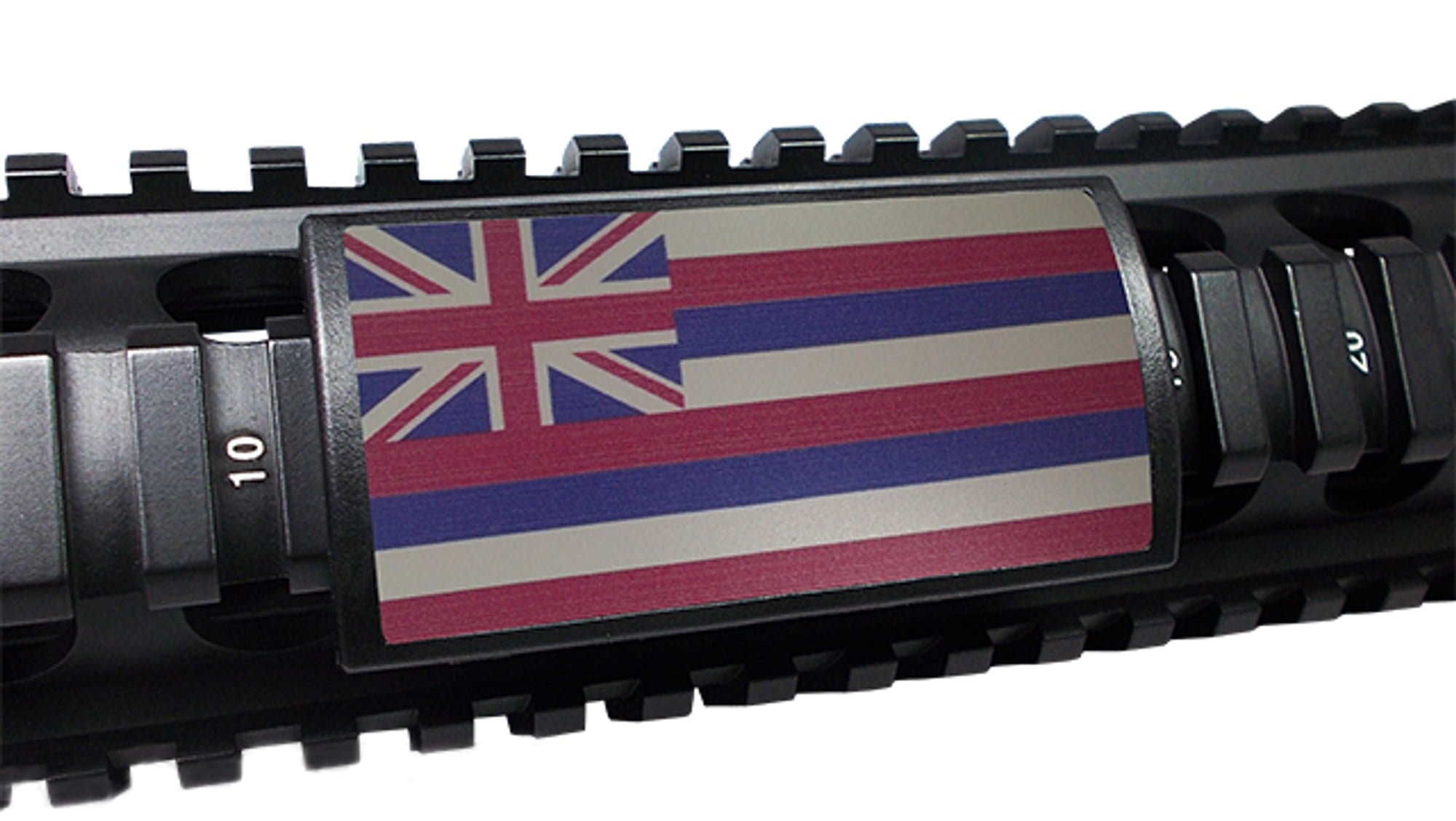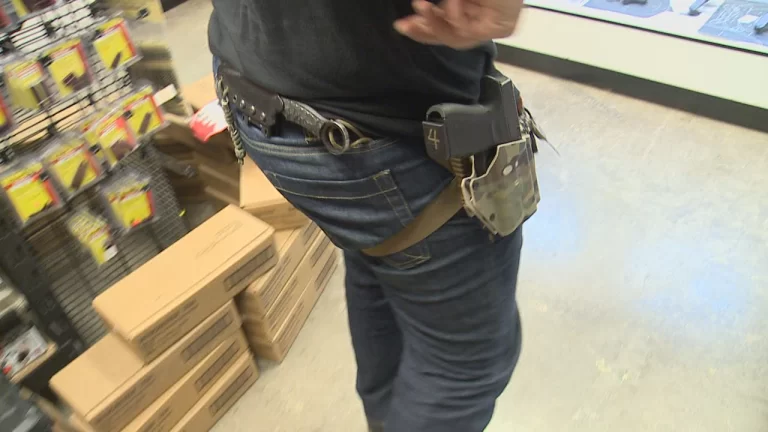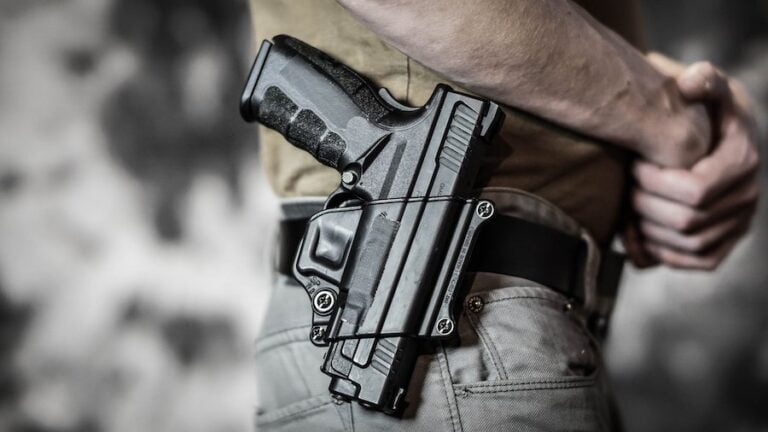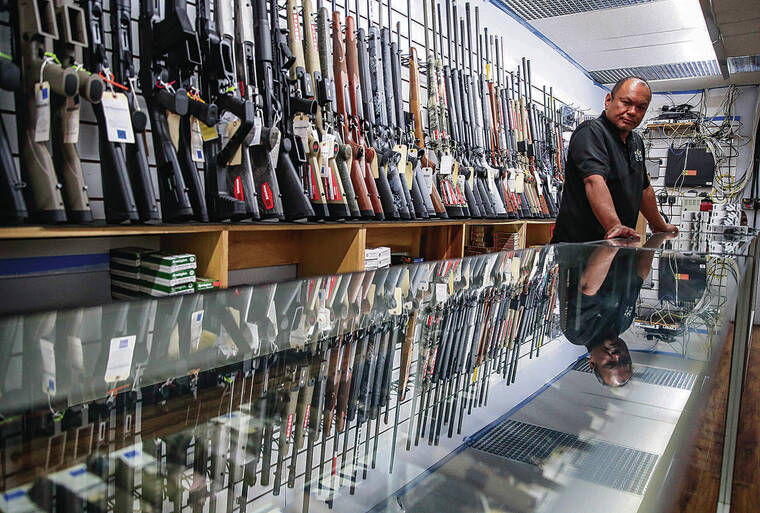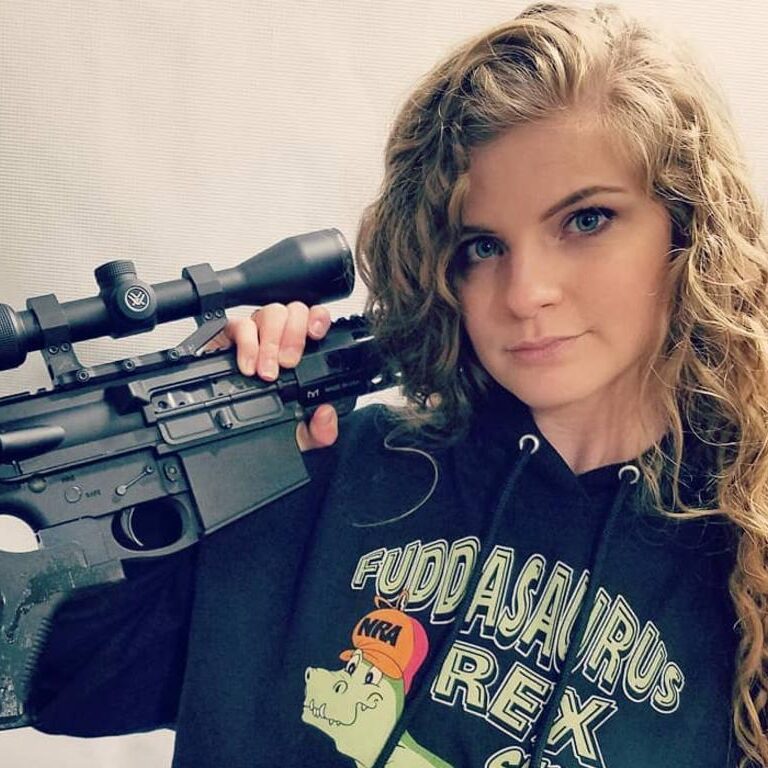Hawaii Gun Laws
Hawaii, with its stunning landscapes and unique culture, has specific regulations in place regarding concealed carry reciprocity. This article delves into the concealed carry laws, reciprocity agreements, and key aspects of carrying a concealed weapon in the state.
Understanding Hawaii’s Gun Laws
Hawaii has undergone a significant change in its concealed carry policies. The state shifted from being a “May Issue” jurisdiction to a “Shall Issue” state following the Supreme Court’s landmark ruling in NYSRPA v. Bruen on June 23, 2022. Consequently, permits for carrying concealed firearms are now issued at the county level, overseen by the chief of police.
Evolution of Hawaii’s Gun Laws
A historical perspective reveals the magnitude of this transformation. In the year 2000, the implementation of mandatory county reporting marked a turning point. During this period, only four permits were issued. The year 2001 saw two permits granted in Maui, while two others were given on Kauai. Notably, one permit was issued to a local judge, and another was granted to an active military member for a short duration in 2013.
Hawaii Gun Laws vs California
Both Hawaii and California have strict gun laws, but Hawaii’s are generally seen as more restrictive for things like permits, registration, type of firearms allowed, storage and transport laws, ammunition restrictions, and concealed/open carry prohibitions. Every firearm and all ammunition brought to Hawaii must be registered. Overall, Hawaii has a very low firearm ownership and gun death rate compared to the rest of the country.
Hawaii’s CCW Reciprocity Landscape
States Honoring CCW Permits
The following states honor concealed carry weapons permits from Hawaii:
Alabama, Alaska, Arizona, Arkansas, Georgia, Idaho, Indiana, Iowa, Kansas, Kentucky, Maine, Michigan, Mississippi, Missouri, Nebraska, New Hampshire, North Carolina, Ohio, Oklahoma, South Dakota, Tennessee, Texas, Utah, Vermont, Virginia, West Virginia, Wisconsin.
Please note that some states may have restricted reciprocity agreements with Hawaii.
States NOT Honoring CCW Permits
The states that do not honor Hawaii’s concealed carry weapons permits include:
California, Colorado, Connecticut, Delaware, Illinois, Louisiana, Maryland, Massachusetts, Minnesota, Montana, Nevada, New Jersey, New Mexico, New York, North Dakota, Oregon, Pennsylvania, Rhode Island, South Carolina, Washington, Washington D.C, and Wyoming.
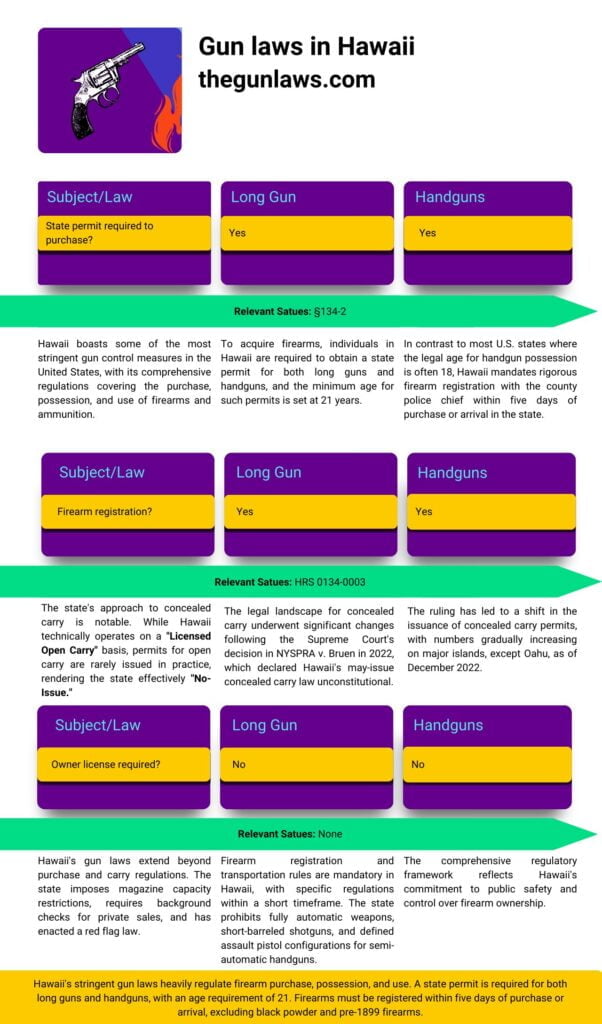
How Reciprocity Works in Hawaii
Reciprocity agreements affect where concealed carry is allowed in Hawaii. Honolulu Mayor Rick Blangardi signed Bill 57 into law on March 31, 2023, outlining these areas.
Places Allowed:
- Restaurants that do not serve alcohol
- Roadside rest areas
- Areas not listed as Off-Limits
Places Not Allowed:
- State and National Parks
- Wildlife Management Areas
- Colleges and Universities
- Public parks (excluding Koko Head Shooting Complex)
- Airports, airplanes, rail stations, cruise terminals
- Theaters, stadiums, museums, amusement parks
- Courthouses, county commissions, city council meetings
- Shelters, residential facilities, healthcare institutions
Understanding Hawaii’s Conceal Carry Laws
Open Carry
While Hawaii is technically an open carry state, only those with the appropriate Hawaii concealed carry license are allowed to openly carry firearms within the state.
Carry-In Vehicle
Hawaii permits individuals to carry firearms, whether concealed or openly, within their vehicles if they possess the required permits. However, legislators emphasize their preference for limited firearms presence on roads.
Carry-In State Parks
Hawaii maintains strict regulations prohibiting firearms within its state and national parks, as well as wildlife areas.
Carry-In Restaurants
Following the signing of Bill 57, firearms are restricted in businesses that sell liquor for consumption, starting from March 31, 2023.
Constitutional Carry
Hawaii’s firearm laws do not recognize constitutional carry, reflecting the state’s stringent approach to gun regulations.
No Weapon Signs Enforced
Hawaii recognizes the legal force of no weapon signs, with violations carrying misdemeanor charges.
Must Notify Officer
Hawaii enforces a “duty to inform” policy, obligating individuals to disclose their firearm possession during interactions with law enforcement officers.
Hawaii Gun Laws for Military
Active military members stationed in Hawaii may apply for personal firearms permits. They must register any weapons brought onto the islands and follow regulations like background checks, safety inspections, and storage requirements. Some exemptions exist for on-duty weapons. Retired military in Hawaii go through the standard concealed carry permitting process.
Hawaii Gun Laws for Visitors
Hawaii gun laws prohibit firearm possession and use by visitors without exception. Visitors traveling to Hawaii cannot bring their firearms, ammunition, electric guns, or other weapons. Those moving need to apply for firearm permits just like residents. Concealed carry is unavailable to visitors, though using firearms at authorized shooting ranges may be permissible when renting guns there.
Conclusion
Hawaii’s concealed carry reciprocity landscape and firearm laws undergo continuous evolution, reflecting changing societal norms and safety considerations. Understanding these regulations is crucial for residents and visitors alike to navigate the complexities of firearm possession within the state.
FAQs;
Q1- Can I openly carry a firearm in Hawaii without a license?
No, Hawaii only permits open carry for individuals with the appropriate concealed carry license.
Q2- Is Hawaii’s concealed carry license valid in all states?
No, Hawaii’s reciprocity agreements vary from state to state.
Q3- Can I carry a firearm in a state park in Hawaii?
No, Hawaii prohibits carrying firearms in state and national parks.
Q4- Is Hawaii a “duty to inform” state?
Yes, Hawaii requires individuals to inform law enforcement officers if they are carrying a firearm.
Q5- Does Hawaii recognize constitutional carry?
No, Hawaii does not recognize constitutional carry; individuals need a valid concealed carry license to carry a firearm.
